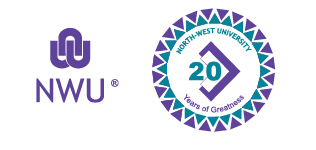Zambia’s economy is built on mining, especially copper. Like all mining activities, copper mining has health risks associated with it. A shortage of formal occupational hygiene expertise and capacity can leave a void in the protection of miners from occupational diseases such as silicosis. A researcher at the North-West University (NWU) is aiming to make a difference by developing occupational hygiene capacity for Zambian mines.
Dr Stefan Linde from Occupational Hygiene in the Faculty of Health Sciences returned from Zambia in October after presenting a week-long workshop on the basic principles of occupational health at the Copperbelt University (CBU) in Kitwe, Zambia. He presented the W201 training module of the Occupational Hygiene Training Association, Basic Principles in Occupational Hygiene, to 13 participants from the CBU and Mopani Mines.
“I believe the NWU has an important role to play in the development of occupational hygiene capacity in southern African countries,” says Dr Linde. “This is not only much needed but essential to help improve the working conditions of miners and workers in other occupations.”
He says there is a lack of legal requirements in Zambia that focus on, for example, the measurement and reporting of exposure to respirable crystalline silica (RCS) dust that can cause silicosis – a long-term lung disorder caused by inhaling large amounts of RCS dust over an extended period of time.
Numerous initiatives are currently under way to address the capacity shortages. The CBU is in the process of establishing an occupational hygiene laboratory to service their industry, meaning they will no longer have to send all exposure samples for analysis to South African laboratories, which is time-consuming and expensive.
Closer ties with Zambian mines
Dr Linde was approached to participate in the occupational hygiene activities of the CBU after its researchers contacted the International Occupational Hygiene Association (IOHA) and Sedulitas, an occupational hygiene consulting and training company.
This led to two PhD students from the CBU, Mwaba Sifanu and Lubinda Nabiwa, spending a week at the NWU in November last year to improve their knowledge of occupational hygiene practices and methods. They are chemistry and physics students respectively whose research applications focus on occupational hygiene, particularly the measurement of RCS exposure in Zambian copper mines.
Dr Linde and a colleague from the University of the Witwatersrand, Dr Daniel Masekameni, were tasked to be their external co-promotors. This research collaboration ultimately resulted in Dr Linde joining forces with Sedulitas to present the W201 course to the CBU participants.
“This is where we started working together with Zambia, and I believe it is just the beginning of more projects, workshops and joint development.”
He hopes it will lead specifically to more cooperation between occupational hygiene students from Zambia and the NWU.
“The NWU can make a difference internationally in this regard. This is why we aim to present more capacity-building and development workshops in Zambia in the future,” he concludes.

Thirteen delegates participated in Dr Stefan Linde’s workshop in Zambia. In the front row are Florence O’Kane, Lubinda Nabiwa, Kamanda Kamanda and Rabbison Banda, all from the CBU. In the second row are the CBU’s Mwaba Sifanu, Aston Nanja, Womba Kaumba, Salome Mulikita and Patrick Hayumbu (course organiser). At the back are Dr Stefan Linde (NWU), Matan Munyenyembe (Mopani Mines) and Elvis Sikapizye, Everisto Mulenga and Lameck Banda from the CBU.
